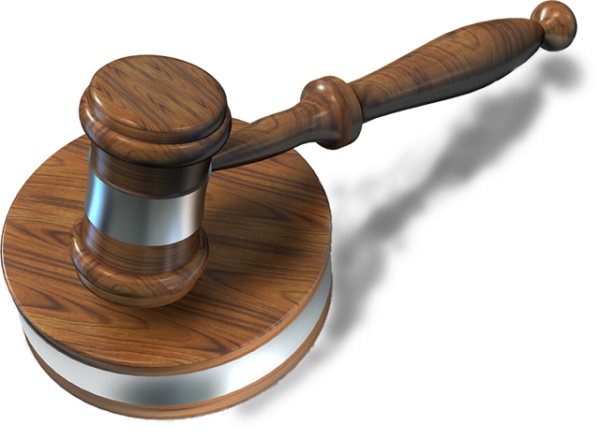
Originally published in Algemeiner MARCH 15, 2016
To lose our country by a scrupulous adherence to the written law, would be to lose the law itself, with life, liberty, property and all those who are enjoying them with us; thus absurdly sacrificing the ends to the means.
– Thomas Jefferson, September 20, 1810
Israel, like any vibrant functioning democracy, needs a strong, independent judiciary – to interpret the law, not to make it.
“In Israel, the negative impact of the judicialization of politics on the Supreme Court’s legitimacy is already beginning to show its mark. Over the past decade, the public image of the Supreme Court as an autonomous and impartial arbiter has been increasingly eroded… the court and its judges are increasingly viewed by a considerable portion of the Israeli public as pushing forward their own political agenda…” – Prof. Ran Hirschl, Towards Juristocracy: The Origins and Consequences of the New Constitutionalism, Harvard University Press, 2004.
The unelected judiciary will not be answerable to anyone for outcomes that result from imposing on the elected, and answerable, branches of government measures that it was not elected to implement – or were elected not to implement. This, then, is the grave danger involved in the usurpation of authority by the courts.
By exceeding its authority, by its arrogance and self-important elitism, Israel’s judiciary is placing itself in jeopardy. With the mounting loss of public trust, the judicial system cannot for long remain credible, and the public will resort to settling its disputes by alternative methods. Without the legitimacy of the legal system, non-democratic authoritarian and tyrannical regimes inevitably take root.
 In Israel, the rule of law has been superseded by the rule of lawyers, who may well be perceived as the enemies of the law. Judges are appointed, all drawn from the ranks of lawyers, who can remain in their positions up and until the mandatory retirement age of 70. When appointed to the bench at a relatively early age, they have many years in which to shape the court and influence future justices. Judges in the mold of former Supreme Court president Aharon Barak definitely leave an activist stamp on the legal establishment. Indeed, though he alleged he did not have an agenda, saying, “None of us may turn our personal beliefs into the law of the land,” it became clear that most judges who served with and after him adopted his activist prescriptions. And it is highly unlikely that they would rule according to beliefs other than their own.
In Israel, the rule of law has been superseded by the rule of lawyers, who may well be perceived as the enemies of the law. Judges are appointed, all drawn from the ranks of lawyers, who can remain in their positions up and until the mandatory retirement age of 70. When appointed to the bench at a relatively early age, they have many years in which to shape the court and influence future justices. Judges in the mold of former Supreme Court president Aharon Barak definitely leave an activist stamp on the legal establishment. Indeed, though he alleged he did not have an agenda, saying, “None of us may turn our personal beliefs into the law of the land,” it became clear that most judges who served with and after him adopted his activist prescriptions. And it is highly unlikely that they would rule according to beliefs other than their own.
Judicial activism is another and efficient way to promote a re-engineering of the social order of the day. It’s no surprise then, that NGO’s, Human Rights crusaders and the like turn to the courts for their stamp of approval to further their social activism in order to affect government policy, rather than through the legislative process in the Knesset. Judicial activism’s detrimental effect on the democratic process must be curtailed. Whether it reflects conservative or progressive liberal agendas, it is bad.
The elected legislature’s majority decisions may or may not accord with the Supreme Court’s worldview, standards and moral codes. But judicial interdicts of those majority outcomes is not at all democratic, and in fact are clearly undemocratic.
Justice Robert Bork was an eminent American legal authority, who, in 1987, said, “Supreme Court President Barak’s judicial vetoes of majority decisions may or may not be proper in a given case, but one thing they are not is a form of democracy; indeed they are a check on democracy.”
Barak’s assertion that both the people’s decisions and the frustration of those decisions are “democracy” eliminates the distinction between rule by elected representatives and rule by judges. This attitude leads to ever-increasing judicial power and the unelected judges assume the role of a supra- legislative body.
The arrogated powers of the judges to override both legislative and executive decisions is no less than a “constitutional revolution.” Ironically, Barak stated that “the court is authorized to interpret the constitution, but it is not authorized to create a constitution.”
An unanswered question is this: If the legal system is supposed to reflect society’s norms (i.e. cultural conventions, moral values and ethical principles that people cherish), why do the judges regularly issue legal edicts and laws that do not necessarily accord with the wishes of the people?
It would seem, rather, that the judges defer to the opinions dominant among the “self-appointed” intellectual elites. These elites — comprised of the legal establishment, mainstream media and voices in academia — believe they possess the wisdom to know what justice is, what truth is, what morality is and what standards and norms should be adopted.
The courts have adroitly expanded their legal authority by legalizing political matters. In stark contradiction to his previously cited position that “the court … is not authorized to create a constitution,” Barak declared elsewhere,“I reject the contention that the judge merely states the law and does not create it.” Thomas Jefferson expressed his fears of the judiciary when he wrote:
The germ of dissolution of our federal government is in the constitution of the federal judiciary: an irresponsible body, working like gravity by night and by day, gaining a little to-day and a little tomorrow, and advancing it’s noiseless step like a thief, over the field of jurisdiction until all shall be usurped from the States, and the government of all be consolidated into one. To this I am opposed; because, when all government, domestic and foreign, in little as in great things, shall be drawn to Washington as the center of all it will render powerless the checks provided of one government on another and will become as venal and oppressive as the government from which we separated.
– Letter to Charles Hammond, August 18, 1821
Israel’s Supreme Court acts as “Supreme Law-Giver,” with its inexorable creep of increasing powers that eat away at the very fabric of society by overruling the democratically elected legislature, usurping powers that were neither granted, never envisaged nor approved of by the democratically elected legislative body. Where are the “checks and balances” that should exist between the judiciary, legislative and executive bodies, when the final arbiters are the judges who can override the other branches of government?
Judicial activism is an alternative and effective way to promote socio-political objectives and rearrange the social order of the day, and as a result can have harmful effects on society.
The Supreme Court is on many occasions the embodiment of judicial autocracy. If left unchallenged, it can endanger everyone’s liberty.
Our democratically elected representatives are not without blame for the disintegration of their legislative powers. By and large, parliamentarians, when challenged by the judges/lawyers, have mostly submitted to the courts’ rulings and abandon much of their legislative prerogatives. This has produced a vacuum for the judges to insert themselves into and replace the “rule of law” with the “rule of lawyers.”
The author is director of operations for the Israel Institute for Strategic Studies.

